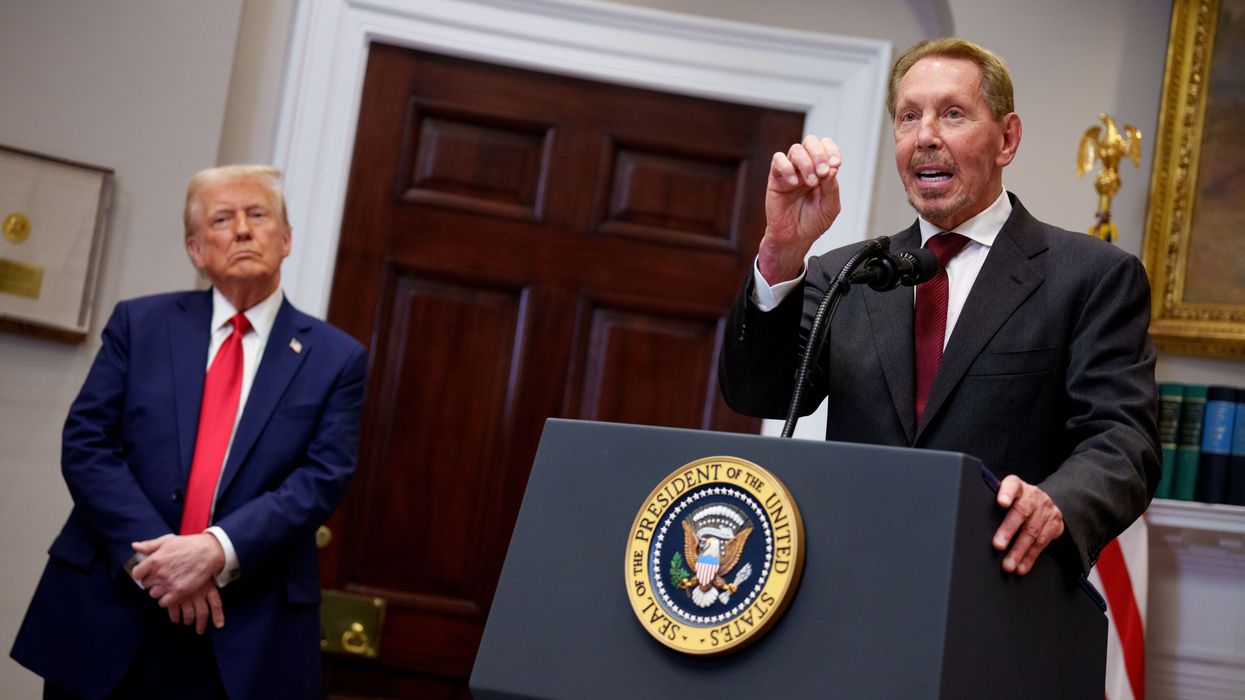April, 30 2020, 12:00am EDT

For Immediate Release
Contact:
Tom Pelton, Environmental Integrity Project, (443) 510-2574, tpelton@environmentalintegrity.org
Nydia Gutierrez, Earthjustice, (202) 302-7531, ngutierrez@earthjustice.org
Hannah Connor, Center for Biological Diversity, (202) 681-1676, hconnor@biologicaldiversity.org
Kemp Burdette, Cape Fear Riverkeeper, (910) 264-8036, kemp@cfrw.us
Court Allows Slaughterhouse Pollution Lawsuit to Move Forward
The U.S. Court of Appeals for the 4th Circuit has ruled that a lawsuit can proceed challenging the Environmental Protection Agency's failure to update national standards to control water pollution from slaughterhouses.
WASHINGTON
The U.S. Court of Appeals for the 4th Circuit has ruled that a lawsuit can proceed challenging the Environmental Protection Agency's failure to update national standards to control water pollution from slaughterhouses.
Wednesday's decision, in a lawsuit filed by community and conservation groups late last year, deferred for later consideration an argument by the government that the court does not have jurisdiction to rule on the case. The order will allow the court to decide whether the EPA violated the Clean Water Act by allowing thousands of meat- and poultry-processing plants to continue using outdated, insufficient pollution-control technology.
"Alarmingly, as Trump seeks to strip slaughterhouse workers of their legal rights just to protect the owners of massive corporate slaughterhouses, shamefully weak pollution standards also effectively shield those same bigwigs from liability for the harm they cause waterways and downstream communities," said Peter Lehner, managing attorney for Sustainable Food & Farming at Earthjustice. "Simply put, this is wrong."
The appeals' court decision allowing the case to move forward comes as COVID-19 outbreaks have sickened about 5,000 slaughterhouse workers, killing almost 20. Widespread outbreaks also have closed some of the largest slaughterhouses across the nation. As a result, producers have begun killing millions of chickens and hogs, raising additional concerns about water pollution from the disposal of animal carcasses, which often contain pharmaceutical drugs and other toxins.
More than 8 billion chickens, 100 million pigs and 30 million cattle are killed and processed each year in more than 5,000 slaughterhouses across the country. An estimated 4,700 of these slaughterhouses discharge polluted water to waterways across the country, including the Chesapeake Bay, either directly or indirectly through municipal sewage-treatment plants.
"We filed this lawsuit because it was clear that, due to outdated regulations, these corporate slaughterhouses would not clean up the waste they continue to dump into local rivers and streams on their own," said Sylvia Lam, an attorney at the Environmental Integrity Project. "Trump's EPA tried to keep us from having our day in court, and we're eager to continue our fight against this administration's efforts to once again prioritize corporations over people."
In an October 2018 report, the Environmental Integrity Project found the average slaughterhouse discharged over 330 pounds of nitrogen per day in 2017 -- an amount of pollution equivalent to that in untreated sewage from a town of 14,000 people. About two-thirds of the 98 slaughterhouses studied for the report discharge into waterways that are impaired by one or more pollutants found in slaughterhouse wastewater.
Meat-processing plants discharge water contaminated with blood, oil, grease and fats. This wastewater contains nitrogen and phosphorus pollution, pathogens and other contaminants. When released into waterways, pollution from slaughterhouses can cause algae blooms that suffocate aquatic life and turn waterways into bacteria-laden public health hazards.
Updated pollution standards could lead to significant improvements in waterways across the country, especially in areas where slaughterhouses are concentrated. The most technologically advanced slaughterhouses already release far less pollution than the dirtiest plants, proving that improved technology exists. Under the Clean Water Act, the EPA must ensure that all slaughterhouses adopt up-to-date and effective technology.
The court's ruling comes in the wake of Trump's executive order on Tuesday that slaughterhouses are to remain open as "critical infrastructure" despite controversy over the more than a dozen slaughterhouses forced to close across the country because of COVID-19 outbreaks and worker safety concerns.
"It's not surprising that an administration that's willing to put slaughterhouse workers in harm's way is uninterested in making sure these plants aren't polluting the environment," said Hannah Connor, an attorney at the Center for Biological Diversity. "It is essential that pollution from these slaughter plants be reduced, not ignored and increased as this administration's policies have time and again supported."
The lawsuit was filed in December 2019 by Environmental Integrity Project and Earthjustice on behalf of Cape Fear River Watch, Rural Empowerment Association for Community Help, Waterkeepers Chesapeake, Animal Legal Defense Fund, Center for Biological Diversity, Comite Civico del Valle, Environment America, Food & Water Watch, The Humane Society of the United States and Waterkeeper Alliance.
"The recent executive order re-opening slaughterhouses is just a bailout for an industry that is crying wolf about food shortages while ramping up exports," said Kemp Burdette, Cape Fear Riverkeeper. "The Trump EPA's refusal to conduct mandated updates to the regulations for the pollution that slaughterhouses dump into our waterways is just another example of this administration's shameful push to prioritize producer profits over the health and safety of everyday Americans. We can do a much better job at cleaning up slaughterhouse discharge and thereby cleaning up our waterways - we just need the EPA to do its job."
At the Center for Biological Diversity, we believe that the welfare of human beings is deeply linked to nature — to the existence in our world of a vast diversity of wild animals and plants. Because diversity has intrinsic value, and because its loss impoverishes society, we work to secure a future for all species, great and small, hovering on the brink of extinction. We do so through science, law and creative media, with a focus on protecting the lands, waters and climate that species need to survive.
(520) 623-5252LATEST NEWS
‘No More Military Aid for Netanyahu,’ Says Sanders as Israel Ramps Up West Bank Takeover
"It’s not just Gaza," the senator said. "Netanyahu’s extremist government is supporting the violent annexation of Palestinian land in the West Bank."
Dec 22, 2025
As Israeli settlers escalate attacks on Palestinians in the West Bank as part of a furious state-backed annexation push, US Sen. Bernie Sanders said it was yet another reason to suspend military aid to the government of Prime Minister Benjamin Netanyahu.
"It’s not just Gaza," the independent Vermont senator wrote on social media Sunday. "Netanyahu’s extremist government is supporting the violent annexation of Palestinian land in the West Bank. This is illegal and immoral, and decades of American silence have enabled it."
"NO MORE MILITARY AID FOR NETANYAHU," he concluded.
Sanders was responding to a feature published in the New York Times that same day, which examined the rapid expansion of illegal settler outposts over the past two decades, and the further acceleration after October 7, 2023, when Israel’s more than two-year genocidal assault began in Gaza following a Hamas-led attack.
The report provides data from the Israeli activist group Peace Now, which found that in 2024 and 2025, Israelis built more than 130 new outposts in the West Bank.
Despite the fact that they are illegal under both Israeli and international law, the settlers constructing these outposts operate with the support of the Israeli military and government.
As the Times reports:
The unrelenting violent campaign by these settlers, that critics say is largely tolerated by the Israeli military, consists of brutal harassment, beatings, even killings, as well as high-impact roadblocks and village closures. These are coupled with a drastic increase in land seizures by the state and the demolition of villages to force Palestinians to abandon their land.
Many of the settlers are young extremists whose views go beyond even the far-right ideology of the government. They are not generally operating on direct orders from Israel’s military leadership. But they know the military frequently looks the other way and facilitates their actions.
In many cases, it is the military that forces Palestinians to evacuate or orders the destruction of their homes once settlers drive them to flee.
Just in 2025, the report says, settlers and the military have razed more than 1,500 Palestinian structures, double the annual average from before 2023. Since the war began, more than 4,000 Palestinians have been forcibly displaced from their homes.
Meanwhile, the Israeli government has also declared a record number of areas in the West Bank to be "state land," meaning that they are off limits to Palestinians and that Israelis can use them to build more settlements.
Far-right forces in the Israeli government have been overt about the intention of these settlements: to carve up the West Bank so thoroughly that a contiguous Palestinian state becomes effectively impossible. Netanyahu has often reiterated his position that under his watch, a Palestinian state will never be created.
In August, as the Israeli government approved a massive 3,400-home settlement project in the heart of the occupied West Bank, Finance Minister Bezalel Smotrich—himself a settler and one of the leading representatives of the far-right settler movement in Netanyahu’s cabinet—boasted that the project “buries the idea of a Palestinian state,” adding that “Every town, every neighborhood, every housing unit... is another nail in the coffin of this dangerous idea.”
On Sunday, Israel’s cabinet approved another 19 Jewish-only settlements across the West Bank, raising the total number to more than 200 in the territory, up from around 140 three years ago. Smotrich said with the new construction, Israel was “putting the brakes on the rise of a Palestinian terror state.”Until recently, the official policy of the US government has been one of opposition to settlements, even as their construction continued largely unimpeded.
During his second term, President Donald Trump has talked out of both sides of his mouth. While promising Arab leaders that Israel would not annex the West Bank as he sought to broker a ceasefire, his administration has often expressed tacit, and occasionally overt, support for settlement expansion.
UN Secretary-General António Guterres denounced the rapid expansion of settlements, saying it “continues to fuel tensions, impede access by Palestinians to their land, and threaten the viability of a fully independent, democratic, contiguous, and sovereign Palestinian state.”
In July, as reports of famine out of Gaza grew increasingly dire due to Israel's blockade of humanitarian aid, Sanders sponsored a Senate resolution to block $675 million in US weapons sales to Israel.
Though the vote was far from passing, 27 members of the Democratic caucus—a majority, for the first time—voted in favor. Sanders said it suggested that "the tide is turning" with respect to attitudes towards Israel's actions within the party.
In an AtlasIntel poll published on Friday, 62% of respondents said they opposed US financial support for Israel, compared with 20% who supported it. 50% of respondents said they "totally oppose" weapons to Israel, while just 9% said they "totally support" it.
Despite this, the most recent military spending bill, passed last week, provides another $650 million in military aid for Israel, up $45 million from the previous package, despite the implementation of a ceasefire in Gaza.
The bill also included an unprecedented measure requiring the executive branch to assess how the US can supply additional weapons to Israel to fill in "gaps" from embargoes imposed by other nations over the country's human rights abuses in Gaza and the West Bank.
Keep ReadingShow Less
'Threat to Media and Democracy': Trump Ally Larry Ellison Puts Up $40 Billion to Help Son Buy CNN Owner
"Yesterday we saw the Ellison-owned CBS kill an important news story for being too critical of Trump," wrote one journalist. "Now Ellison is making another move to try to win control of CNN."
Dec 22, 2025
Oracle co-founder Larry Ellison, an ally of US President Donald Trump and one of the richest men in the world, pledged on Monday to provide $40.4 billion to help finance his son's hostile bid to acquire Warner Bros. Discovery, the owner of CNN, HBO Max, and other major media assets.
The billionaire's personal financing guarantee was announced in a press release issued by Paramount Skydance, a company headed by David Ellison, Larry Ellison's son.
"Paramount has repeatedly demonstrated its commitment to acquiring WBD," David Ellison said in a statement. "Our $30 per share, fully financed all-cash offer was on December 4th, and continues to be, the superior option to maximize value for WBD shareholders."
Paramount launched its $108 billion effort to take over Warner Bros. earlier this month, days after Netflix and Warner Bros. leadership announced a proposed merger deal. Antitrust advocates have warned that either merger would be destructive for journalism, television writers, media industry competition, and consumers.
Paramount added Larry Ellison's personal funding pledge to its offer after Warner Bros. board members raised concerns about the initial proposal, pointing specifically to the absence of a concrete guarantee of the billionaire executive's backing. Larry Ellison's net worth is estimated to be around $243 billion.
"The ability to deal directly with Larry if there was an issue to close would be critical," Warner Bros. board chair Samuel Di Piazza Jr. told CNBC last week. "Otherwise closing might not happen."
News of Larry Ellison's direct intervention in Paramount's bid for Warner Bros. came amid mounting concerns over media consolidation into the hands of a few right-wing billionaires and the Trump administration's growing political influence at the nation's news networks.
Last week, TikTok’s Chinese owner signed a deal giving Larry Ellison's company and other investors an 80% stake in a newly formed US TikTok entity.
On Sunday, chaos and outrage erupted at CBS News after editor-in-chief Bari Weiss spiked a "60 Minutes" segment on El Salvador's CECOT prison shortly before it was set to air. Sharyn Alfonsi, the veteran "60 Minutes" correspondent who led the segment, accused Weiss of making a "political" decision to prevent the airing of a report that would have reflected badly on the Trump administration. Paramount Skydance is the owner of CBS News.
"It's hard to ignore that this happened just as Paramount's hostile bid for Warner Bros. was slipping away," The American Prospect's David Dayen wrote late Sunday. "Time to please the king again."
Journalist and media critic Jennifer Schulze warned Monday that "Larry Ellison is a threat to journalism and democracy."
"Yesterday we saw the Ellison-owned CBS kill an important news story for being too critical of Trump," Schulze wrote. "Now Ellison is making another move to try to win control of CNN."
Keep ReadingShow Less
'An Abject Failure': Economists Trash Trump's Disastrous Job Creation Record in Year-End Reviews
"The jobs aren’t coming back, the wages aren’t rising," one economist said.
Dec 22, 2025
President Donald Trump has justified his historically high tariffs on foreign goods by promising that they would lead to a boom in domestic manufacturing jobs in the US.
However, in year-end reviews of the US job market, three economists make the case that Trump's record on creating manufacturing jobs has been a massive bust.
Mike Konczal, senior director of policy and research at the Economic Security Project and a former member of President Joe Biden’s National Economic Council, argued in his personal newsletter on Friday that the Trump administration's efforts to reorganize the US labor market away from service sector jobs have completely failed.
In particular, he found that jobs in manufacturing, mining, and logging have all declined throughout the first year of Trump's second term, while jobs in construction have remained mostly flat after years of steady growth during former President Joe Biden's administration.
What's more, the administration's stated goal of opening up more jobs for native-born US workers by conducting mass deportations of immigrant workers has also flopped, as native-born unemployment has been higher in 2025 than in either of the last two years.
"The bleak irony is that even after sacrificing real prosperity to chase this 4chan-level political economy, they still won’t achieve their goal," Konczal concluded. "The jobs aren’t coming back, the wages aren’t rising, and family formation won’t be rescued by trying to rewind the labor market to a world that never existed in the first place."
Nobel Prize-winning economist Paul Krugman concurred with Konczal's assessment of the US labor market in an analysis published Monday in which he described Trump's record on jobs as "an abject failure."
Krugman argued that Trump's war on clean energy projects is almost certainly making the situation even worse by killing blue-collar manufacturing and construction jobs in the wind and solar industries.
"Trump has scrapped Biden’s green energy policies in favor of tariffs and fossil fuels," Krugman noted. "But it isn’t working. Instead, employment in 'manly' sectors has fallen since Trump took office."
Additionally, said Krugman, Trump's plan to use tariffs to bring back manufacturing jobs to the US was always destined to fail given the realities of how modern economies work.
"In the modern world nations mostly don’t sell each other completed consumer goods," he explained. "Instead, the majority of trade involves sales of goods that are used to produce other goods... What this means in practice is that tariffs, which raise the prices of those capital goods and inputs, raise the production costs of US manufacturers, in many cases making them less competitive with foreign producers."
Ball State University economist Michael J. Hicks, in a column published Monday by the Indianapolis Star, also pointed the finger at Trump's tariffs when explaining his failure to revive US manufacturing.
Hicks argued that the damage the president's policies have done to manufacturing won't be undone any time soon.
"The US is in the early days of a manufacturing contraction that will run through most of 2026, even if the tariffs are lifted today," he warned. "We should call it the deindustrialization of America. All of this flies in the face of the nonsensical claims of a manufacturing renaissance or onshoring that would bring factory jobs back to the US."
Keep ReadingShow Less
Most Popular


